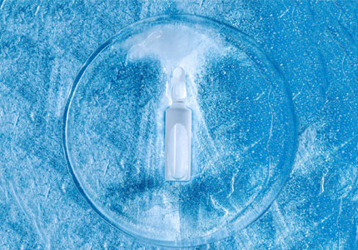Controlled Freezing Of ADCs
By Johannes Kirchmair, CEO & Co-Founder

Antibody-drug conjugates (ADCs) are an exciting new class of drugs that could revolutionize the treatment of cancer and other diseases. ADCs can deliver highly potent chemicals to selectively destroy harmful cells in the body, leaving healthy cells untouched.
ADCs do have some disadvantages, however, such as their large molecular size and issues with their ability to enter cells; small molecule-drug conjugates (SMDCs) offer one means of avoiding these drawbacks.[2] These biomarker-targeted small molecule compounds have a lower molecular size than antibodies, which enables them to more easily penetrate solid tumors. In the case of one recently developed SMDC, it targets tumor cells and then releases its cytotoxic payload, which subsequently enters tumor cells and destroys them by causing damage to their DNA.
Explore how the final quality of biopharmaceuticals such as ADCs is highly dependent on the process step of freezing and thawing and requires rapid freezing, a reliable cold-chain, and effective process management throughout their storage and shipment.
Get unlimited access to:
Enter your credentials below to log in. Not yet a member of Bioprocess Online? Subscribe today.
